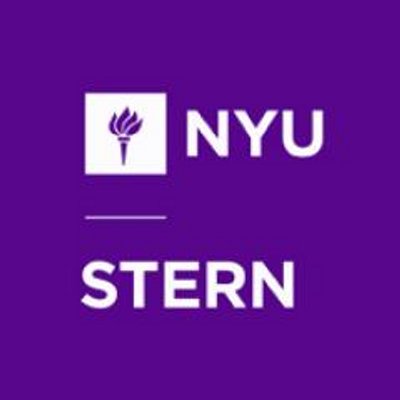|
|
Share
2 years ago
8 Oct 2023 09:10
After completing a five-year dual-degree program (B.A. - LL.B. Hons. - JD equivalent) from India's top Ivy League Law School in 2013, I joined as an officer in a government corporation responsible for implementing infrastructure development projects funded by public funds and debt from infrastructure development banks. During the first half of the last decade of my career, I focused on public policy, market regulation, and investment advisory services, working closely with government ministries, regulatory bodies, and government-owned businesses (corporations) with total investments exceeding 200 billion USD between 2014 and 2019. During this period, my team was also managing investment transactions totalling over 25 billion USD.
In the latter half of the last decade, I worked in various capacities as an advisor and policy & regulatory specialist in the energy and power utility sector. I provided advisory to private investors, venture capital funds, sovereign funds, corporations, and entrepreneurs operating in renewable power markets, power generation, power distribution, and the energy transition space. As a professional advocate enrolled with the Bar Council of India, I held the position of Senior Associate & Head of Regulatory & Policy Advocacy at Trilegal, a Tier-I (domestic) Law Firm known for its excellence in Energy & Infrastructure practices. As a policy advocacy expert, I advised both corporations and government ministries on a variety of policy issues at Trilegal.
In the past year, I achieved the distinction of becoming the youngest Assistant Vice President (by at least a decade) in one of the group companies of Vedanta Ltd. and played a key role in structuring new investments totalling USD 550 million.
In addition to my professional accomplishments, I have actively contributed to various academic and pro-bono initiatives. One significant initiative involved volunteering for three consecutive years with the Global Clean-tech Innovation Programme of UNIDO, where, I served on a panel of mentors and advised up to 30 start-ups each year, working on innovative and groundbreaking technologies in sustainable development, waste management, energy sustainability, natural resources, agriculture, and related sectors.
Given my extensive experience in the energy, infrastructure, and sustainable development sectors, particularly in the areas of investment, policy, and regulatory, I believe I am well-positioned to pursue unconventional opportunities and make a substantial contribution to a more sustainable and energy-secure world. An MBA from a leading global business school will provide me an opportunity to make global footprints in my domain expertise. I also believe that there is no better time to pursue MBA if you desire to contribute for building more sustainable future, because the world today is experiencing a transitional change in the manner we see our energy needs and sovereign energy security.
In the latter half of the last decade, I worked in various capacities as an advisor and policy & regulatory specialist in the energy and power utility sector. I provided advisory to private investors, venture capital funds, sovereign funds, corporations, and entrepreneurs operating in renewable power markets, power generation, power distribution, and the energy transition space. As a professional advocate enrolled with the Bar Council of India, I held the position of Senior Associate & Head of Regulatory & Policy Advocacy at Trilegal, a Tier-I (domestic) Law Firm known for its excellence in Energy & Infrastructure practices. As a policy advocacy expert, I advised both corporations and government ministries on a variety of policy issues at Trilegal.
In the past year, I achieved the distinction of becoming the youngest Assistant Vice President (by at least a decade) in one of the group companies of Vedanta Ltd. and played a key role in structuring new investments totalling USD 550 million.
In addition to my professional accomplishments, I have actively contributed to various academic and pro-bono initiatives. One significant initiative involved volunteering for three consecutive years with the Global Clean-tech Innovation Programme of UNIDO, where, I served on a panel of mentors and advised up to 30 start-ups each year, working on innovative and groundbreaking technologies in sustainable development, waste management, energy sustainability, natural resources, agriculture, and related sectors.
Given my extensive experience in the energy, infrastructure, and sustainable development sectors, particularly in the areas of investment, policy, and regulatory, I believe I am well-positioned to pursue unconventional opportunities and make a substantial contribution to a more sustainable and energy-secure world. An MBA from a leading global business school will provide me an opportunity to make global footprints in my domain expertise. I also believe that there is no better time to pursue MBA if you desire to contribute for building more sustainable future, because the world today is experiencing a transitional change in the manner we see our energy needs and sovereign energy security.















Amazing accomplishments! They come a bit as a double-edged sword. How will the MBA help you and enable you to reach your goals… that would be one aspect to address clearly in your essays - why do you need an MBA and how it will help your career. At your level, almost EMBA would be a cinsideration but it does not have OPT so that’s a big negative.
I have known a number of people however in their 30s who got in and were successful but recruiting was done on their own as they were too senior for the jobs traditionally recruited after an mba.
Coming from the Cleantech background, couple of quick observations:
-You have a pretty solid career going for you, so have you really thought why you need an MBA? Is it a desire to transition from a policy focused role into a more business management role? Think through this question hard.
-What's the end goal? Is it entrepreneurship? Is it CXO? This will be very relevant for a senior executive like yourself since you will be making a heavy investment on the career front
-You are committing the principal mistake of applying to too many programs, please note that in one round not more than 4 school applications (that too with over 3 months+ of preparation) can be done given the nuanced research required for each application
-Round 3 is a strict no for International applicants
-For career in Renewable / Energy, United States may not be the best destination as Energy is a strong state subject and hence most Energy companies do not recruit international students
- EU maybe a good fit since they have an older cohort, have seen that they are open to candidates with 10 years experience and are aggressive on the Net Zero ambition.
If you are really keen on an MBA, please evaluate the prospect of moving back to India or starting at a lower level in a global firm in a business oriented role. Some programs that may do the trick for you are IMD, INSEAD, MIT Sloan Fellow, Stanford MSx and LBS.
If you have any other queries, please reach out at info@thembaedge.com.
1. The MBA for me is a tool to unlock a potential life long opportunity of working in energy security markets in India and South East Asia. I primarily see a great deal of policies and political drive in this region for achieving sustainable energy and regional power security. The scenario is similar in European and gulf nations, Singapore is another great destination for my post MBA jobs. Having said this that I do not foresee US markets as my primary employment markets post MBA, why do I still prefer a US B-School? The answer lies in the reputation, opportunities and learnings that are offered here, which are globally recognised and attracts a great deal of recruiters.
2. I do foresee a larger management role post MBA in India, I can not overlook the fact that the opportunities would also be equally available in public policy and government advisory space. Typically, with an MBA from the Ivy League, I can find myself an employment in consulting, advocacy think-tanks, law firms, corporates etc. Therefore, my primary objective is to gather knowledge and business know-how to get into roles which are more on the management or advisory turf.
3. What I would be majorly focusing on in my MBA would be economics & finances, Human Resources, Public Policy, and entrepreneurship. I want to work in agri-tech industry post MBA as it blends my experience of energy and utility sector with the needs of the agriculture sector. Notwithstanding, that the policy, advocacy and finance would be the major drivers of market growth in India for the next two to three decades when we talk about country's food security.
4. I am also interested in exploring opportunities to contribute with foreign governments, specially in the African nations where energy transition is currently underway and requires a global insight to implement financing models and investment policies. I am confident that these opportunities would be possible with a global MBA.
5. As far as the selection of B-school list is concerned, I am fully aligned with the observation that the best approach is to apply for a maximum of 5-6 B schools in one round, the objective of listing several schools is to get a profile evaluation for these schools where I am interested in applying.
Also, just to add, I received admission invitation from NYU - Law in 2018 (rejected) for a specialised LLM in energy laws.
-Ideally go for an MBA in the geography where you would want to work in the short term since recruiters tend to prefer recruiting from local markets. While US MBAs are well recognized across the globe, if you intend to work in Asia / EU chose a business school over there since a local alumni network (which plays a big role in recruitment) makes a substantial difference.
-A US MBA will cost you over $200k for a 2 year format, so it may not make sense from an ROI perspective to return immediately to India, in the US the industries open to international students typically are Tech, Consulting and Finance. So be mindful that you may have to rethink your career options are be open to moving out of Energy to stay in the US
-LLM and MBA admissions are quite different so please dont make any judgment on the basis of the past applications to LLM.